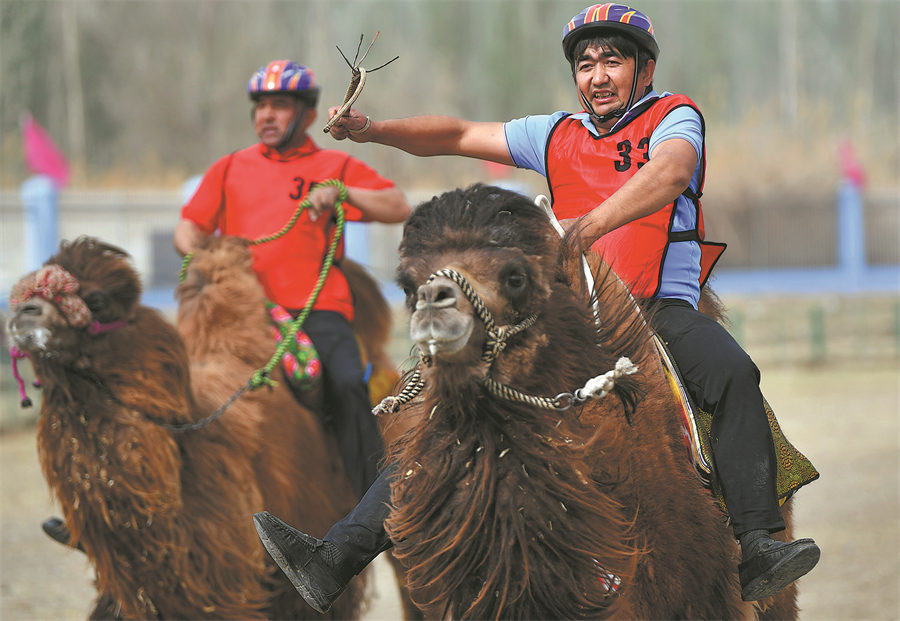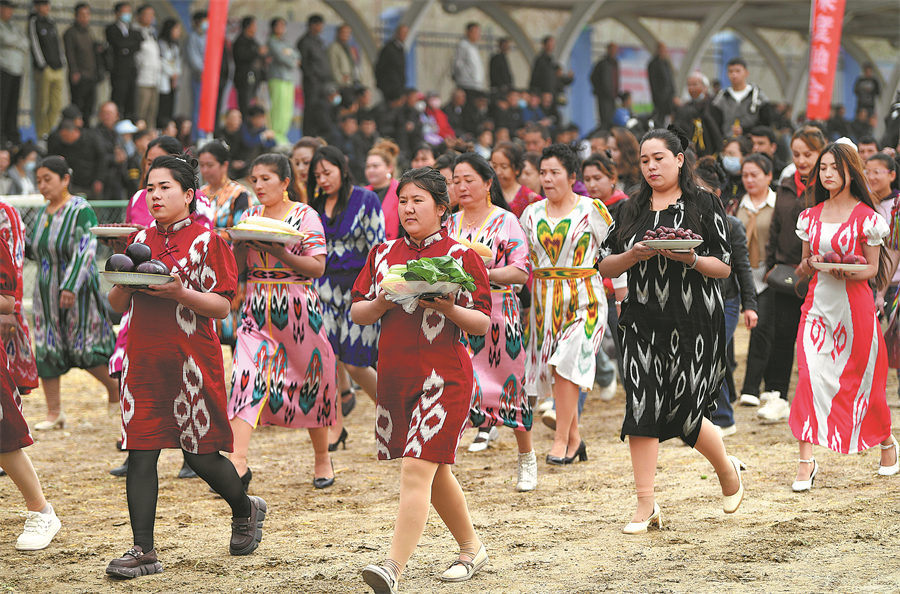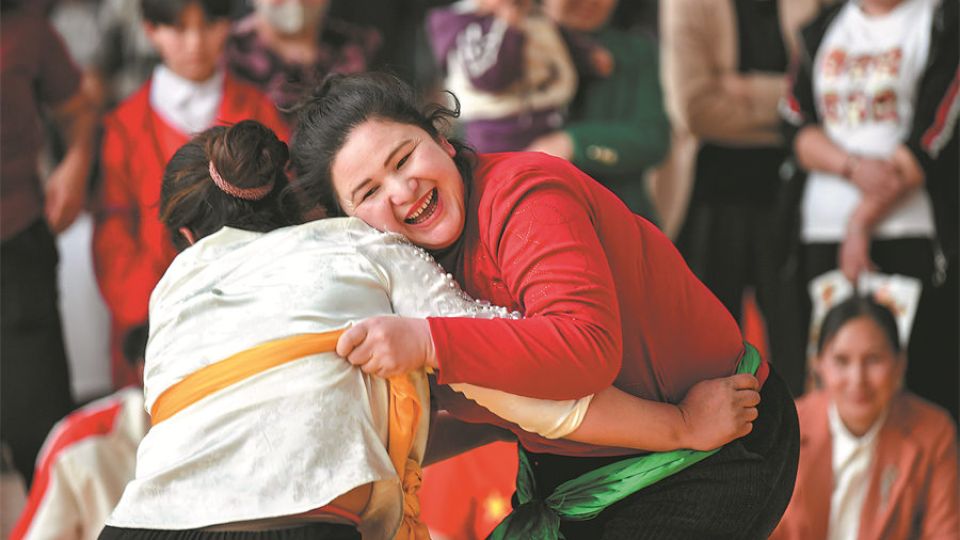April 29, 2025
BEIJING – The excitement and competitive spirit of unconventional sports was on full display recently on the edge of the vast Taklimakan Desert as some 1,000 competitors battled for glory in 16 events — from camel racing to goat-grabbing, or buzkashi (a horseback game in which players compete to place a goat carcass in a goal). Held from April 12 to 14, the locally organized 29th grassroots games of ethnic groups in Yutian county, Hotan prefecture, Xinjiang Uygur autonomous region, had a unique charm and appeal.
There are no assigned seats — spectators perch on haystacks for the best view, but they must be alert not to get too close to the action and avoid organic fertilizer underfoot. Athletes march, not in uniform, but proudly carrying local specialties like fragrant melons from their hometowns.

Camels and their owners compete. PHOTO: XINHUA/CHINA DAILY
The crowd erupts as the camel race begins. Eziz Aysha, a farmer from a nearby village was unlucky last year when his chances were squandered by a stubborn camel and is now set to make amends. “This time, we’re ready!” he grins.
Abdulaeziz Abduhewar, a Maire ball player, dazzles with footwork honed at the 12th National Traditional Games of Ethnic Minorities in Hainan province last year. Maire ball, a form of hockey, is an ancient sport for the Uygur ethnic group originating from Hotan.
Another highlight of the competition is goat-grabbing where riders scramble for a carcass of goat. Among the fiercest teams are a father-son duo from the Aman family. “We came to make friends — and win!” the team says, with dust flying as their horse charges.

Dressed in ethnic clothing, athletes march, proudly carrying local specialties like fragrant melons from their hometowns. PHOTO: XINHUA/CHINA DAILY
The event’s 29-year legacy is a testament to resilience. Decades ago, Yutian, choked by sandstorms, had unfavorable weather conditions for sports. After decades of efforts, a 3,046-kilometer tree wall has shielded the region since last year, cutting annual sandstorms by more than 50 days.
The local women’s Maire ball team has benefited from the improving environment. Once isolated in the desert’s heart, they now train on proper courts after a 2019 relocation. “Now we have roads, neighbors and jerseys,” says the team.

A fight between goats attracts attention. PHOTO: XINHUA/CHINA DAILY
Between events, visitors flock to Yutian’s bustling bazaar — one of southern Xinjiang’s largest — where skewers sizzle, honeydew melons glisten, and farmers hawk prized desert roses.
As the sun sets over the dunes, the cheers linger — a vibrant echo of hope in the desert.


